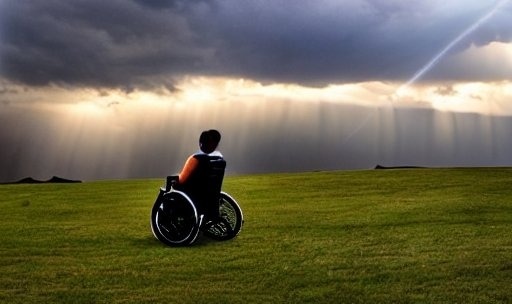The Connection Between Traumatic Brain Injury And Depression

Traumatic brain injury (TBI) is a physical injury that can cause long-term effects on the brain. It is estimated that TBI affects more than 1.7 million people in the United States each year.
Depression is one of the most common psychological effects of TBI. Research has shown that in some cases, TBI can lead to an increased risk of psychological and emotional issues, such as depression.
Symptoms of depression after TBI can vary from person to person, but may include feelings of sadness, difficulty concentrating, irritability, and changes in sleep patterns. It is important to recognize the signs of depression in order to seek treatment and support.
Additionally, it is important to understand the link between TBI and depression and how these conditions interact with each other. It is also important to be aware of the impact of TBI on mental health and to know the available treatment options for TBI and depression.
Finally, it is essential to learn coping strategies in order to manage the impact of TBI and depression on everyday life.
Signs of Depression After a TBI
A traumatic brain injury (TBI) can lead to a variety of signs of depression, and it is important to be aware of these signs. These signs can include changes in mood, such as feeling depressed or anxious, difficulty sleeping, changes in eating habits, decreased energy, and difficulty with memory.
Additionally, TBI survivors may experience difficulty concentrating, increased irritability, and difficulty managing emotions. It is important for both the survivor and their family or caregivers to be aware of the signs of depression as it can develop suddenly and rapidly in those with a TBI.
Early diagnosis and treatment of depression is key to managing its symptoms and helping the survivor to resume their daily activities and participate in meaningful relationships. It is important for those with a TBI to seek help from a medical professional if they experience any of the signs of depression.
The Link Between TBI and Depression
Examining the correlation of a certain condition to another can be an emotionally evocative experience, highlighting the irony of the situation. Recent studies have shown that a traumatic brain injury (TBI) is strongly linked to an increased risk of developing depression. It is estimated that anywhere between 10-80% of individuals who have suffered from a TBI will develop some form of depression or another mood disorder:
- The link between TBI and depression is thought to be correlated to the metabolic and neurochemical changes that occur in the brain due to the injury:
- Damage to the frontal lobe or temporal lobe can cause changes in the levels of certain neurotransmitters, such as serotonin.
- Changes in neurotransmitter levels can cause mood disorders such as depression.
- Another factor thought to be related to the link between TBI and depression is the interruption of the normal functioning of the brain due to the injury:
- A TBI can cause disruption to the normal way that information is processed in the brain, leading to confusion, difficulty concentrating and impaired judgement.
- These changes in the way the brain functions can also lead to depression.
- Lastly, the psychological impact of a TBI can also lead to depression:
- Adjusting to life after a TBI can be difficult, as it often involves changes in lifestyle and relationships.
- These changes can cause feelings of loneliness, helplessness and hopelessness, all of which are symptoms of depression.
Due to the strong link between TBI and depression, it is important to be aware of the signs and symptoms of depression and to seek treatment if needed.
The Impact of TBI on Mental Health
The impact of a TBI on mental health is significant, with research indicating a heightened risk of developing mood disorders. It is estimated that more than 50% of individuals with a traumatic brain injury will develop a psychiatric disorder, including depression, anxiety, or post-traumatic stress disorder.
In addition, individuals with a TBI are more likely to experience cognitive impairments such as memory loss or reduced concentration, which can lead to further psychological distress.
The effects of a TBI on mental health can be long-lasting and difficult to treat. Studies have shown that individuals who have a history of TBI are more likely to experience depression, even several years after the initial injury.
Treatment for TBI-related depression typically involves both pharmacological and psychosocial interventions, such as Cognitive Behavioral Therapy, to help individuals manage their symptoms. In some cases, a combination of medications and psychotherapy may be necessary in order to achieve the desired outcome.
Treatment Options for TBI and Depression
Achieving a successful treatment plan for TBI and depression requires a multifaceted approach, as the old adage goes: “no two snowflakes are alike”. This is due to the fact that traumatic brain injuries and the associated depression can vary widely in their severity and type, requiring a tailored approach to treatment that meets the specific needs of the individual.
Common treatments for TBI and depression may include:
- Cognitive behavioral therapy
- Psychotherapy
- Medications
- Lifestyle changes
- Other therapies like yoga or massage therapy
Cognitive Behavioral Therapy (CBT) is a type of psychotherapy that focuses on altering negative thought patterns and behaviors that can contribute to depression. It can be tailored to meet the specific needs of the individual, and can be used to assess and manage the symptoms of TBI and depression.
Medication, if prescribed, can be used to address both the physical and psychological symptoms of TBI, and can include antidepressants, antipsychotics, and mood stabilizers.
Additionally, lifestyle changes such as dietary and exercise changes, as well as stress management techniques, can help improve mental health and reduce symptoms of depression.
Finally, alternative therapies such as yoga, massage therapy, and meditation can help reduce stress, improve sleep, and promote relaxation.
Coping Strategies for TBI and Depression
Coping with the symptoms of traumatic brain injury and depression can be a difficult and complex process, requiring an individualized approach that takes into account the unique needs of the individual.
Some coping strategies for TBI and depression include:
- Developing a plan to manage stress and regulate emotions
- Engaging in activities that promote physical and cognitive health
- Learning relaxation techniques such as mindfulness and deep breathing
- Seeking support from family, friends, and mental health professionals
Conclusion
The impact of traumatic brain injury (TBI) on mental health is significant, yet often overlooked or misunderstood. The link between TBI and depression is well-established, as symptoms of depression are commonly seen after a TBI.
Treatment options for TBI and depression, such as psychotherapy and medication, are available and should be discussed with a healthcare professional. In addition, self-care and coping strategies can help people manage depression after a TBI.
However, some may argue that TBI and depression are unrelated, and that depression is a result of other factors. Though this may be true in some cases, the link between TBI and depression cannot be ignored.
Thus, it is important for healthcare providers to consider both TBI and depression when assessing mental health in order to provide the best possible care.







